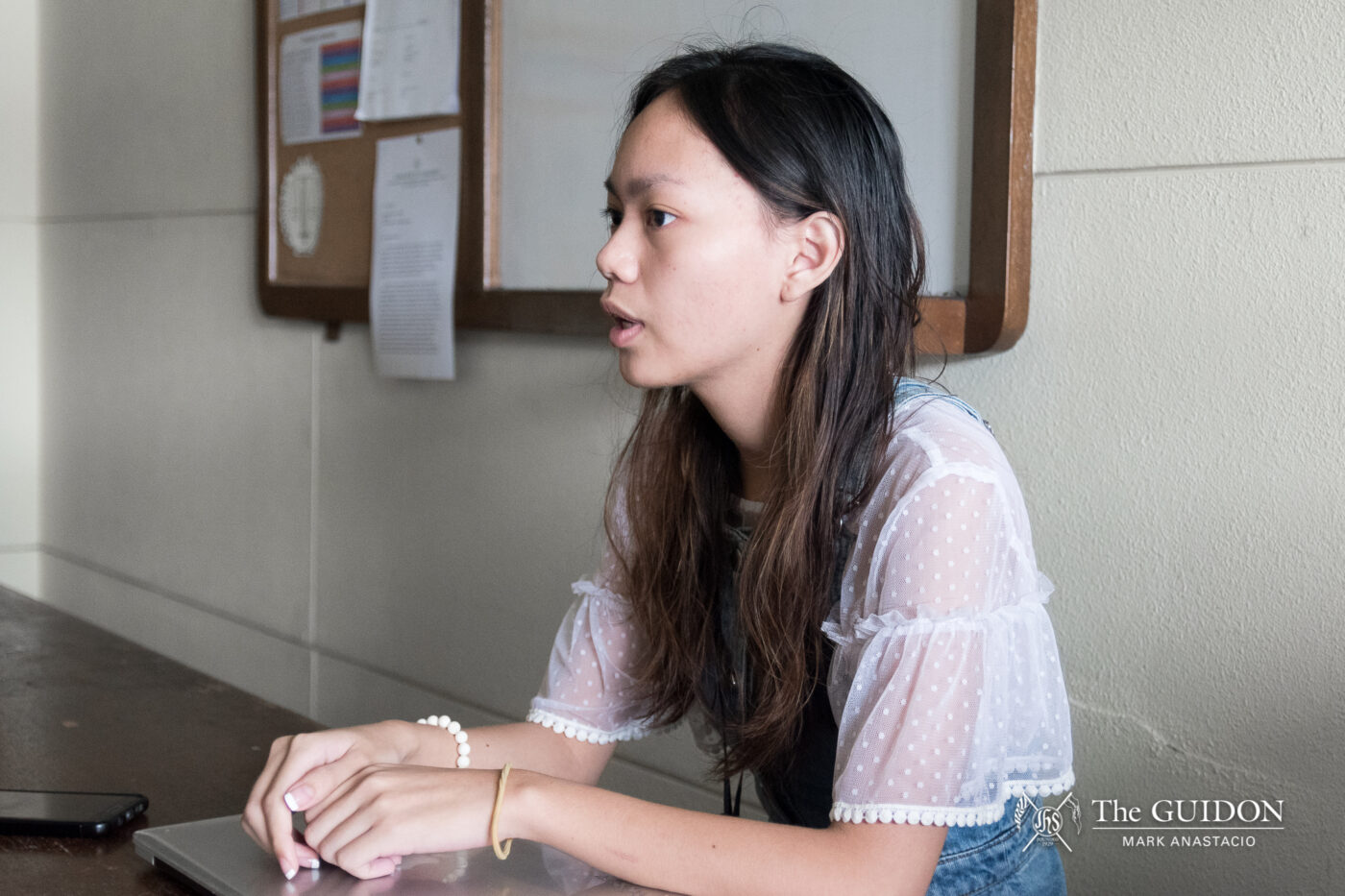THE LOYOLA Schools Office of the Ombudsman has been suspended from providing legal counsel by the Ateneo Student Judicial Court (SJC), leaving the office in a mandatory deadlock.
In a court order issued on August 22, the SJC ruled that the Office of the Ombudsman providing legal counsel is “clearly not in any way an investigative action,” citing Article X, Section 1 of the 2016 Loyola Schools Undergraduate Constitution.
The court order, however, was released by the SJC without any petition.
The court order also ruled that the Office of the Ombudsman “blatantly acted outside of their constitutional mandate” and stated that Prosecutor General for the Office of the Ombudsman Mikaela Ko Teh is not recognized by the court as the legal counsel for the Ateneo Commission on Elections (COMELEC).
Ko Teh previously stood as the legal counsel for COMELEC when they filed a petition to the court regarding proposed amendments to the Electoral Code.
This is in light of the Court issuing the said court order concerning the Office and the provision of legal counsels without any prior petition or trial preceding it.
‘Conflict of interest’
According to SJC Chief Magistrate Ayesha Del Rosario, this prohibition stems from an issue of “conflict of interest” for both prosecution and defense services that might be given by the Ombudsman in the future.
“Imagine a typical prosecutor’s office. Its job is to prosecute people, or prove in court that an accused is guilty. Now imagine if that prosecutor’s office can appoint legal counsels to people or offices. What if that particular office or person gets accused of something?” she explained.
Del Rosario also emphasized that providing a legal counsel is “not in any nature investigative, but rather the practice of law,” with which she said may cause a conflict of interest if both prosecution and defense hail from the same office such as the Ombudsman.
“The rationale in saying that the Office of the Ombudsman does not have the mandate as far as assigning legal counsels is concerned is reflected in the narrative earlier: To prevent any conflict of interest,” she said.
Ombudsman’s woes
In an interview with The GUIDON, Ombudsman Therese Bico defined legal counsel as a “lawyer in itself” that enables them to represent students and provide them legal services.
“The issue is really not assigning legal counsel to COMELEC in this case. It’s more on the fact that the court order said that we cannot act as legal counsels for present and future cases,” she said.
However, Del Rosario clarified that the court order does not prohibit the Office of the Ombudsman from filing cases or investigating complaints, but emphasized that they can only do so as the main petitioner.
“Any aggrieved entities or students may still approach the Office of the Ombudsman to fight for their needs, but once a petition is passed, the petitioner shall be the Office, and the aggrieved party becomes a key witness to the Office’s case,” she said.
Additionally, Bico expressed her disappointment over the Court issuing the said order without petitions prior to it.
When asked about their release of the court order without a petition, Del Rosario said that as the Judiciary Arm of the Sanggunian, the SJC can be proactive “if there was a clear breach in the practice of law,” making such practice acceptable for the Court.
Followed up if they had released proactive resolutions in the past, Del Rosario said that this was the first time.
Del Rosario said that despite the 2016 Loyola Schools Constitution’s “silence” on the practice of law, their actions were patterned after Philippine law and jurisprudence which explains the Court’s practices.
“Given that Philippine courts have this power, one can surmise that SJC becomes authority and overseer of law practice within the Undergraduate Students of the Loyola Schools and its Sanggunian,” she said.
“The court was made aware of this practice of the law through the [COMELEC’s] petition submitted, classified the matter as a breach of the practice of law, hence we have sole full authority and prerogative to issue that kind of nature of a court order,” she added.
Article VIII, Section 1 of the 1987 Philippine Constitution states that judicial power “includes the duty of the courts of justice to settle actual controversies involving rights which are legally demandable and enforceable, and to determine whether or not there has been a grave abuse of discretion amounting to lack or excess of jurisdiction on the part of any branch or instrumentality of the Government.”
Lawyer Francis Lim, in a column for the Philippine Daily Inquirer, said that the judiciary’s power is “inherently passive” and that “it cannot act unless a case has been brought to it.”
The Supreme Court of the Philippines is also given the power of “administrative supervision” over the lower courts, as well as the power to discipline lawyers, pursuant to the Rules of Court.
Courses of action
In spite of the events, COMELEC Commissioner Martin Moreno deemed the legal counsel essential for it provides “legal advice regarding petitions and how to deal with cases.”
He also mentioned the implication of not having a legal counsel for the COMELEC.
“I think it would be a bit harder for COMELEC since we really need help whenever we have a petition or there’s a petition against us that was brought to the [SJC],” he said.
“We need more help regarding and writing the petitions, on what to do, what’s constitutional, [and] what’s unconstitutional.”
As for the Ombudsman, Bico said that they will continue to perform their mandate despite the court order. She said that the order is “not enforceable” because a petition was not filed regarding the issue.
“If we technically follow the court order that means you cannot actually act on them, the only thing we can do is to investigate [future or present cases],” she said. “But seemingly, it would be impossible to get accountability if we don’t actually file cases,” she said.







